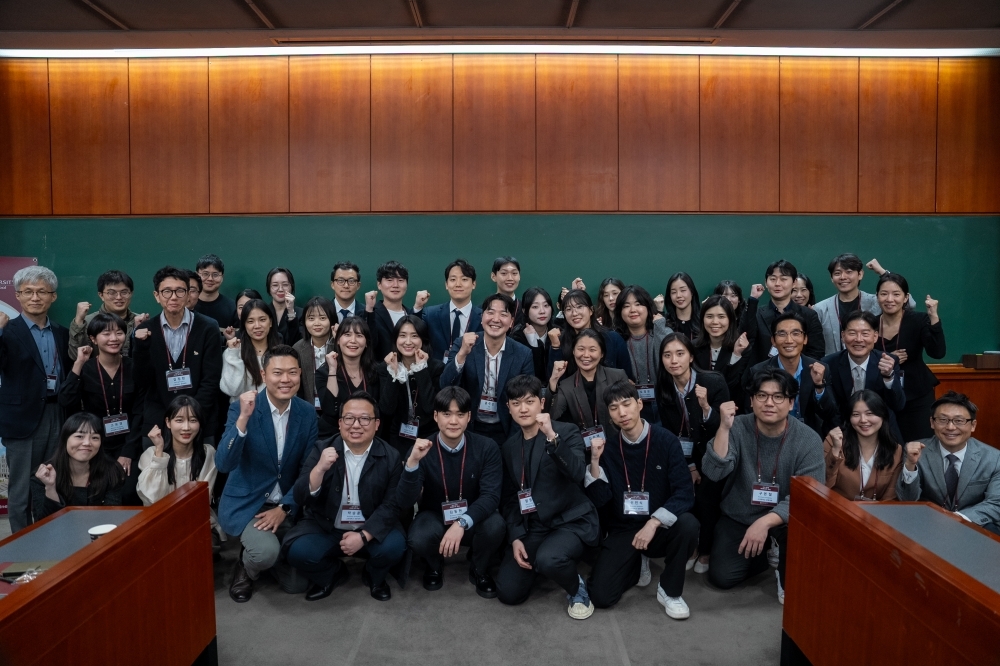News
KUBS News
Leveraging Data and AI to Solve Business Challenges: The 5th KUBS DT DAY Concludes Successfully
2024.11.29 Views 2438 국제실
Leveraging Data and AI to Solve Business Challenges: The 5th KUBS DT DAY Concludes Successfully
On November 1, Korea University Business School (KUBS, Dean: Eonsoo Kim) hosted the 5th KUBS DT DAY at the LG-POSCO Hall. Organized by the Center for Digital Transformation & Business (CDTB, Director: Kyung Sam Park), the event showcased innovative ways to address business challenges using data and AI technologies. The day included the finals of the DAB (Data Analytics for Business) competition, a networking luncheon, and the presentation of capstone projects by MSBA (Master of Science in Business Analytics) students.
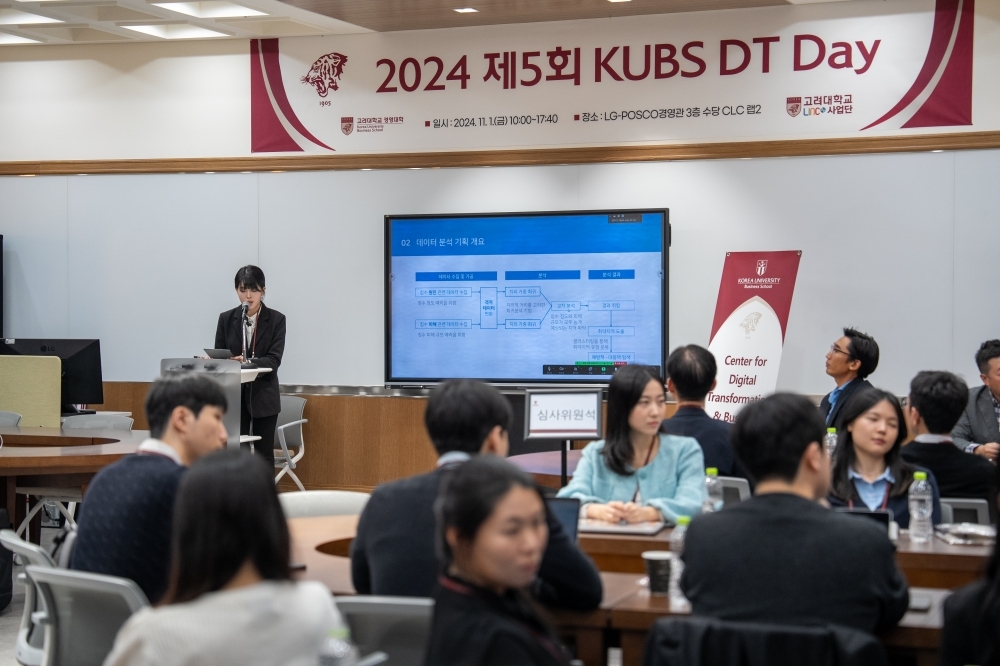
The DAB competition invites teams to propose business solutions by analyzing data. This year, 12 teams participated, with five finalist teams presenting innovative solutions to address diverse business and societal challenges, including improving safety for vulnerable road users, promoting environmental sustainability, resource recycling, flood prevention, and enhancing spam detection systems.
The Golden Navi team that won the competition developed a navigation system specifically for vulnerable road users, focusing on accident-prone areas in Seoul’s Songpa District. Their system provides safe routes to help reduce traffic accidents for this demographic.
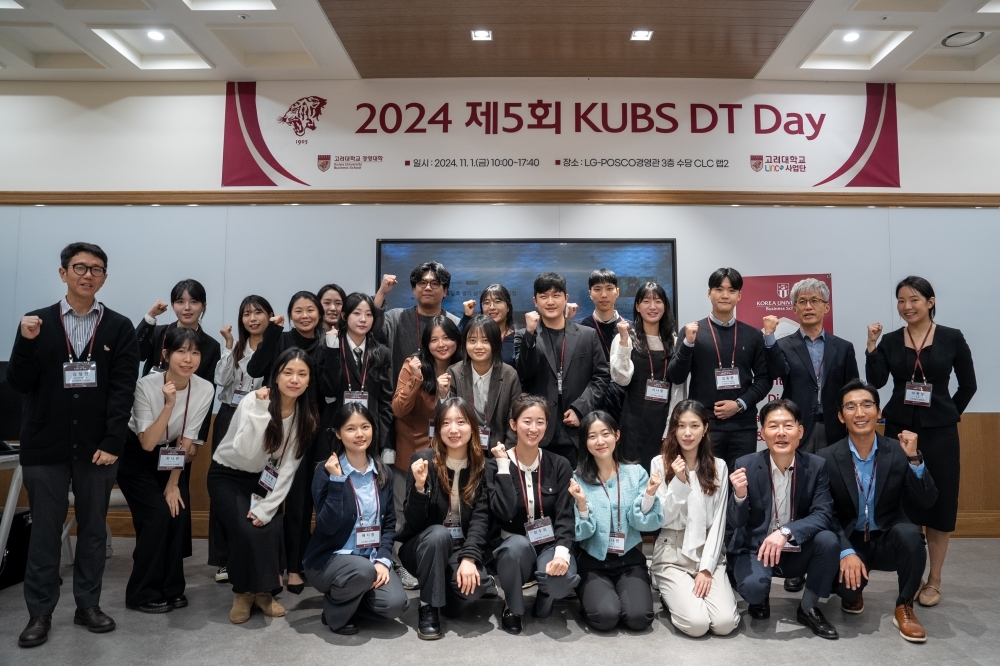
Addressing environmental sustainability, the Dolido team identified optimal locations for reusable cup return stations in Seoul. By analyzing population density and traffic flow, they proposed a profitable and efficient resource recycling system.
The Urban Lock team reimagined public telephone booths as small parcel lockers. Their solution maximizes the use of underutilized urban spaces, promotes secondhand trading, and enhances urban safety.
Tackling recurrent urban flooding, the Aqua Guardians team designed a system to predict high-risk flood zones using geographically weighted regression models. Their approach offers actionable insights for preventive measures and policy development.
Leveraging large language models (LLMs), the Spam Opner team built an advanced spam detection system capable of identifying altered spam messages with special characters, addressing limitations in existing detection methods.
After the competition, the luncheon brought together MSBA students, faculty advisors, and corporate partners to foster connections and discuss ongoing projects. Dean Eonsoo Kim emphasized the importance of collaboration between academia and industry, welcoming the participation of external experts and corporate representatives.
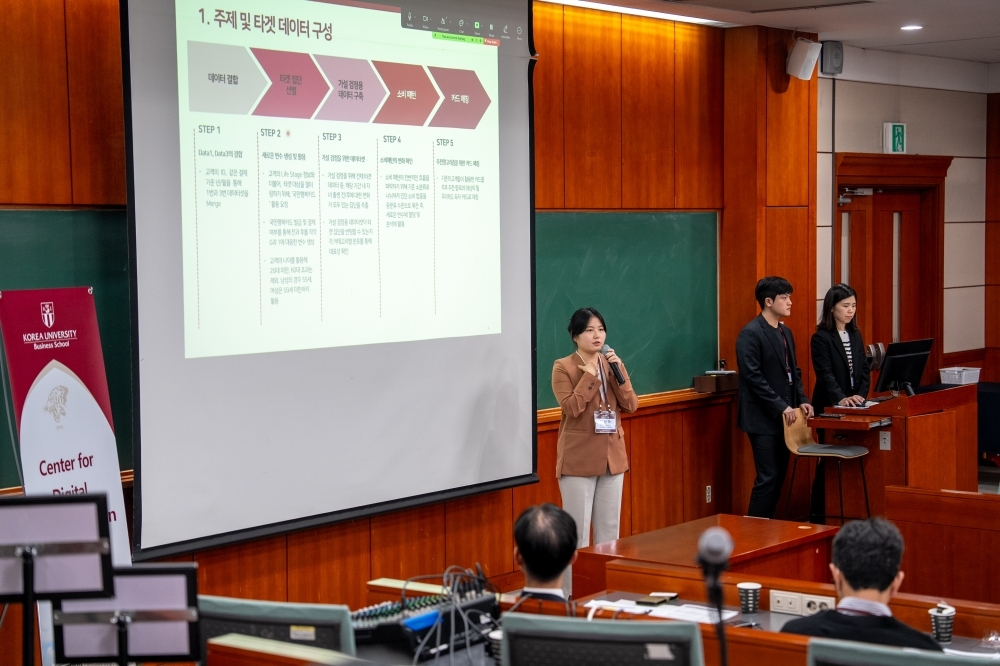
Finally, the MSBA capstone projects serve as a substitute for traditional theses, allowing graduate students to tackle real-world business challenges using data provided by corporate partners. For 2024, seven companies, including Hyundai Motor Company, LG CNS, PwC Consulting, Woori Card, LG Household & Health Care, E-Land, and the Korea Credit Information Services, collaborated by supplying data and supporting regular interactions with their teams.
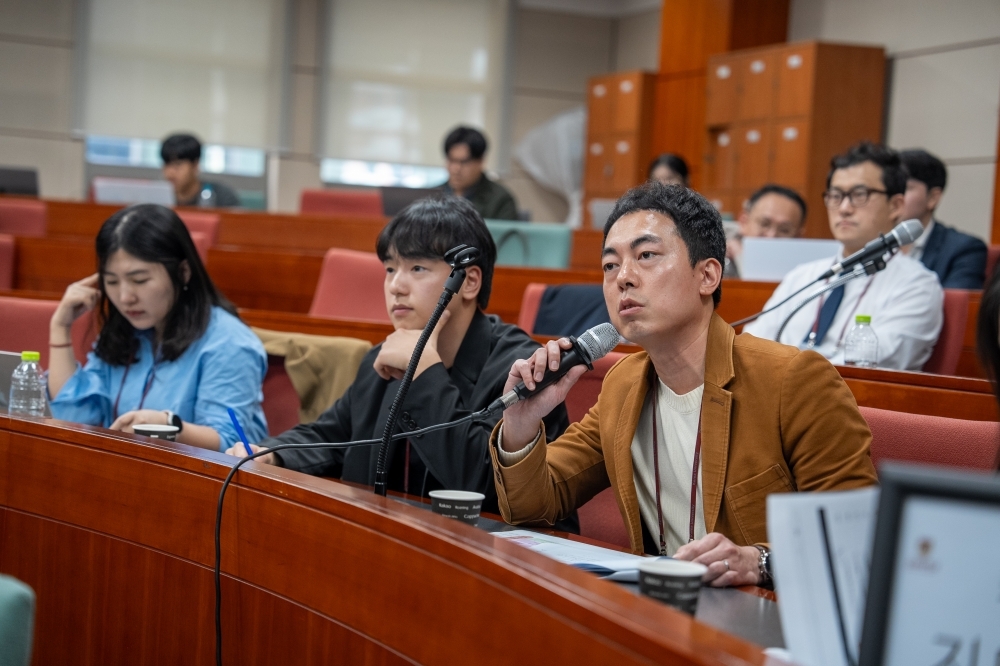
Ten out of 11 project teams presented their mid-term findings, receiving constructive feedback from corporate partners to refine their final deliverables. Notable project topics included:
-
Customer targeting to increase engagement through LMS messaging.
-
Causal inference models for effectiveness analysis and visualization.
-
Structuring image documents using Vision-Language Models (VLM).
-
Advanced QA systems using Retrieval-Augmented Generation (RAG) with LLMs.
-
Development of credit card recommendation algorithms targeting young parents.
-
Forecasting optimal inventory levels to minimize supply risks for LG Household & Health Care.
-
Product quality improvement strategies based on customer reviews of shampoos and body lotions.
-
Deriving optimal discount rates using price elasticity analysis.
-
Financial behavior analysis of foreign residents in Korea.
-
Insights into insurance ownership and cancellations based on credit levels.
Corporate representatives provided detailed feedback from a practical perspective to guide teams toward actionable solutions.
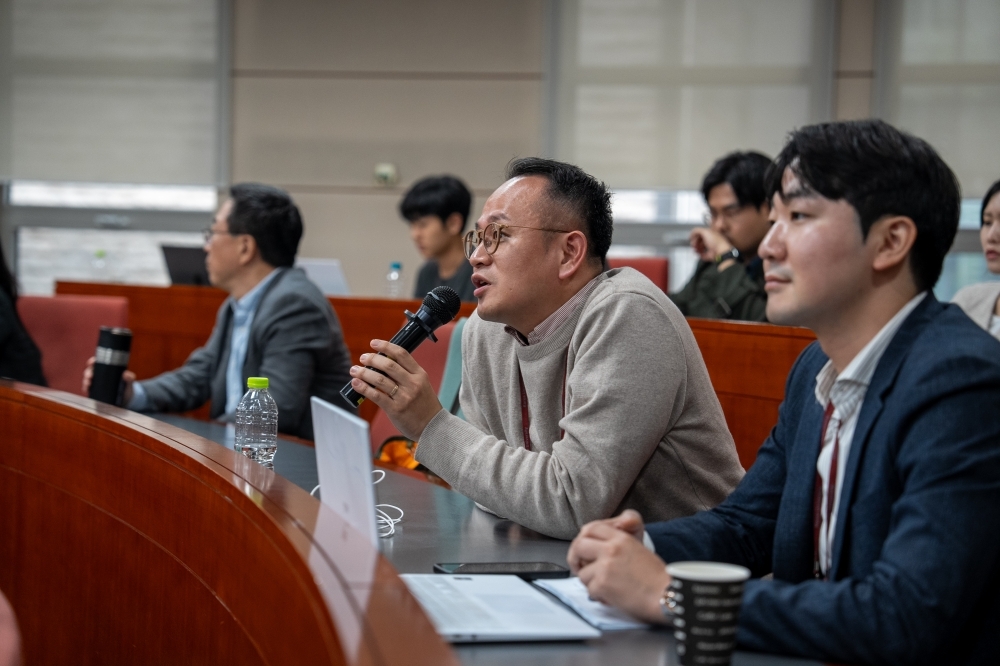
Director of CDTB Kyung Sam Park expressed gratitude to the faculty, corporate partners, and students for their contributions to the event, which concluded with a group photo. As CDTB’s flagship event, DT DAY continues to inspire innovative uses of data and AI in addressing real-world challenges.
